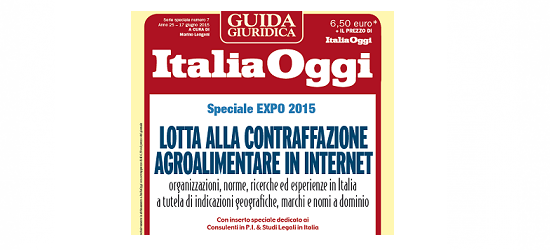
Laura Turini Esq., Studio Brevetti Turini Srl
A cooking recipe is substantially made up of a list of ingredients and of a method that teaches how to unite them together, therefore, in brief, it is a procedure that allows to obtain a product.
This procedure, and/or the product obtained, can be patented on condition that it is new and inventive and that it produces a “technical effect”.
It will not be enough, therefore, to change an ingredient for another one just to obtain a different flavour; it will be necessary, instead, that through the change of the production process or the substitution of ingredients a technical problem is solved, which could be that of reducing the amount of calories, reducing the cooking times, improving the conservation of food or its digestibility.
The problem of the protection of cooking recipes remains, however, relevant every time they do not have the features mentioned above and they cannot therefore be patented.
There will always be the possibility of protecting the names of the dishes, as well as the name of the chef, through the registration of the trademark. With the registration of the design, instead, the characteristic and original shape of food can be protected.
It is also possible to intervene if the written text of a recipe is copied and published without consent, even if only on the Internet, provided that the recipe is original and is not a mere list of ingredients.
The real problem remains, however, that of trying to obtain the exclusive rights on the recipe intended not as a written text but as a teaching on how to prepare a certain dish or food.
After Nouvelle Cuisine, cooking has assumed a different role from the social and cultural points of view and does not limit itself anymore to produce food but it also tends to generate emotions.
Tastes have an effect on the senses and on the mind that would not seem to me different from the effect that music or a picture can have.
In addition, as in the field of design there are lamps or tables that, apart from performing their main function of lighting or constituting support bases, lift spirit through the appreciation of beauty intended in the broad sense, in the field of cooking certain dishes can be compared to true and real works of art.
It could be easily contested that in the list pursuant to art. 1 and to art. 2 of the Copyright Law (L. 22.04.1941 no. 633) cooking recipes are not included and that a recipe could hardly be comprised within the works that belong to literature (except for written recipes as said above), to music, to the figurative arts, to architecture, to theatre and to cinema. To reply to this objection, I would resort to that part of the doctrine which, even if not of the majority, considers that it is not a definite list, also because the definiteness is always more contrasting with the expressive forms of the world that surrounds us that could certainly not be foreseen by the congressman in 1941, the year when the Copyright law passed.
Moreover, jurisprudence, though always denying openly the protection of “simple” ideas, tends to recognize the protection to those ideas that are defined as “elaborated ideas”.
It has thus been recognized the protection of the format of a TV programme when «its narrative structure is developed with the articulation of the various scenes, with the specification of the junctions of the dramaturgical progression, with the specification of the various psychological traits of the characters, with the overall description pf the places, of the events and with the definition of the lines of the main dialogues» (Trib. of Rome, 06.07.1999).
The protection given to a format allows its owner to be able to impede others to make programmes similar that reproduce the structure of his own, even if not reproducing it in an identical manner, and also allows its author to be able to be recognized as such.
Consequently, the recipe is, it can be said, a format that expresses very precise elaborated ideas aimed at producing a work of art that is a new cooking dish.
As courageous and innovation-prone judges are not lacking, I would be glad to read a sentence in which the deserved protection is recognized to an innovative and original dish.
